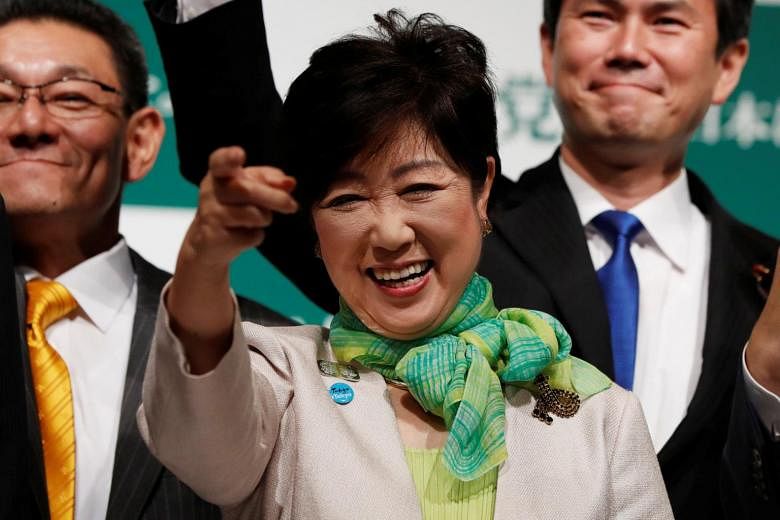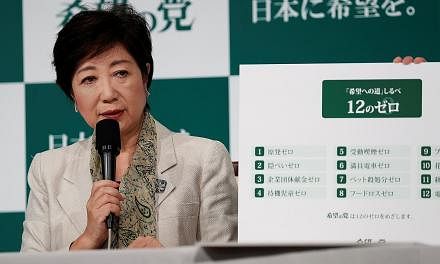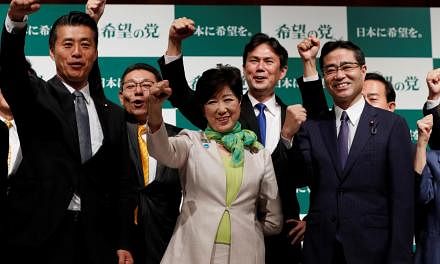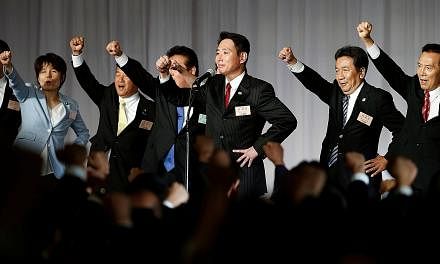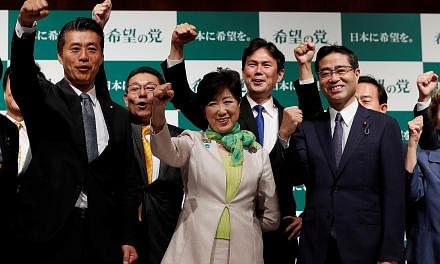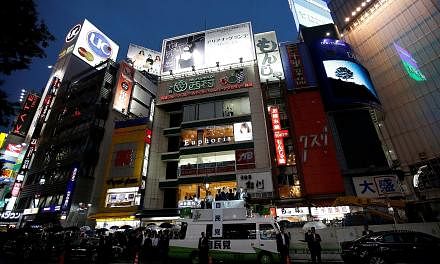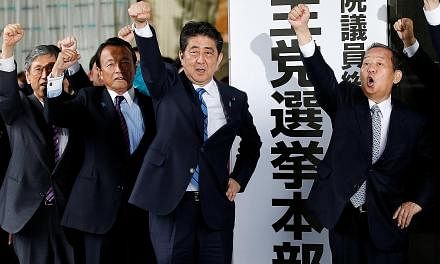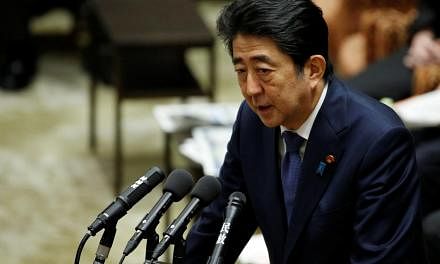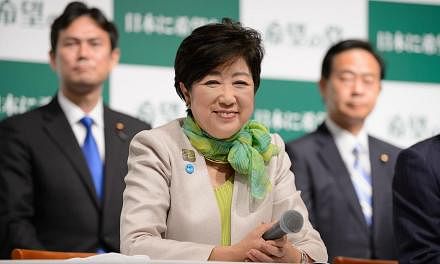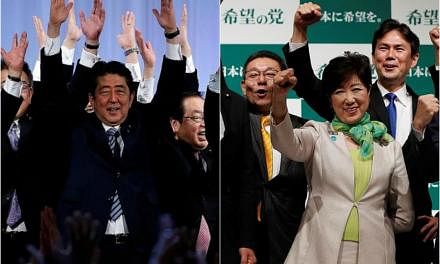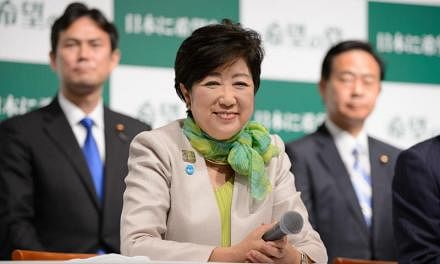Tokyo Governor Yuriko Koike is pitching her new Kibo No To (Party Of Hope) as the opposite of the ruling Liberal Democratic Party (LDP) run by Prime Minister Shinzo Abe.
She has hit out against the LDP for being opaque and having vested interests, and criticised Mr Abe's signature "Abenomics" economic policy mix as not going far enough to propel reforms.
If it sounds familiar, it is because her line of attack follows the exact script she has used - to great success - in two previous electoral campaigns. All eyes are now on whether she will triumph for a third time.
Despite her insistence on differentiating her party from Mr Abe's LDP, both parties share a number of similarities. They are both allies of controversial revisionist right-wing lobby group Nippon Kaigi and are on the same page over amending the war-renouncing Article 9 of the Constitution.
At a news conference on Monday, Mr Abe tried to point out that Ms Koike's party is not that different after all - "Our basic concept is the same in terms of national security."
Ms Koike's close ally Masaru Wakasa, who was heavily involved in establishing the party, has said he "cannot work with anyone who is opposed to revising the Constitution".
For all Ms Koike's attempts to enthuse voters, unless Kibo No To "can differentiate itself from the LDP by proposing distinctive platforms, voter turnout might remain low", said University of Tokyo political scientist Yu Uchiyama.
Ms Koike has repeatedly attacked what she terms as the "black box" of old-school LDP politics, to portray those in power as the enemy and her party as the voice of reform.
A former LDP politician, she first ran as an independent for the Tokyo governor post in July last year after failing to win the LDP's backing for the role.
She has since become a vocal critic of the party, blaming the bureaucratic mess she inherited in the botched move of the Tsukiji fish market to a new site in Toyosu on the LDP's bungling.
Ms Koike took her chance, amid a nadir in Mr Abe's ratings after he was implicated in two cronyism scandals, to lead the local Tomin First No Kai (Tokyoites First) party to a resounding victory in the Tokyo assembly polls earlier this year.
She quit the party after that, saying she wanted to focus on her role as chief of Japan's sprawling capital, which has a population and economy larger than Singapore's.
But she is now the face of the upstart challenger to the LDP - though without throwing her own hat into the ring and despite having said she would keep her distance from national politics.
And this mixed messaging, against her most formidable opponent yet, could well backfire.
Sophia University political scientist Koichi Nakano told The Straits Times: "The idea that she can just continue to get the attention and to translate her position of power in Tokyo to serve as a launching pad to national politics is fraught with difficulties."
He added: "She is not going to be part of the Diet herself, but will get ample airtime to present herself as a reformist despite her rather incoherent - even makeshift - policies. This really is just a media phenomenon."
On Tuesday, Ms Koike tried to name-drop her mentor, popular former LDP prime minister Junichiro Koizumi, in an interview. He called a news conference yesterday to disavow any links with Kibo No To, though he said he supports the party's zero nuclear reliance stance.

